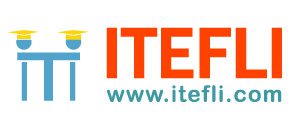Presentation, Practice, Production (PPP)
TEFL Methodology taught in most TEFL training programs is generally “PPP” or Presentation, Practice, and Production.
The presentation is the part of the lesson when the target language (the language to be taught to the students) is presented to the students generally through eliciting and cueing of the students to see if they know it and then providing the language if no one does.
The target language is usually put on the board either in structure (grammar-type) charts or in dialogues. The presentation features more “teacher talk” than the other stages of the lesson, generally as much as 65-90% of the time. This portion of the total lesson can take as much as 20-40% of the lesson time.
Next comes the Practice section when the students practice the target language in one to three activities that progress from very structured (students are given activities that provide little possibility for error) to less-structured as they master the material.
These activities should include as much “student talk” as possible and not focus on written activities, though written activities can provide a structure for the verbal practices.
Practice should have the “student talk time” range from 60-80 per cent of the time with teacher talk time being the balance of that time. This portion of the total lesson can take from 30-50% of the lesson time.
“Production” is the stage of the lesson when the students take the target language and use it in conversations that they structure and use it to talk about themselves or their daily lives or situations. Production should involve student talk at as much as 90% of the time and this component of the lesson can/should take as much as 20-30% of the lesson time.
As you can see the general structure of a PPP lesson is flexible, but an important feature is a movement from controlled and structured speech to less-controlled and more freely used and created speech. Another important feature of PPP (and other methods too) is the rapid reduction of teacher talk time and the increase in student talk time.
Notes: One of the most common errors untrained teachers make is that they talk too much.
EFL students get very little chance to actually use the language they learn and the EFL classroom must be structured to create that opportunity.
Links:
TEFL Courses & TEFL Training Programmes
TEFL Jobs & English Teaching Positions

